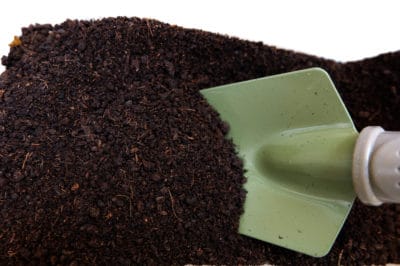About Bamboo
Although some bamboo may tower 50 or 60 feet in the air, these fast-growing plants are actually members of the grass family. You can even fertilize them with the same fertilizer you’d give your lawn. Running bamboos in particular can grow extremely fast, especially once the rhizome mass is mature. This fast growth means that bamboo needs plenty of nutrients in the growing season.
Soil Preparation
A sound nutritional program for bamboo begins with proper soil preparation. Bamboo needs soil that drains well and is slightly acidic. Dig in humus in the form of well-rotted leaf mold, aged manure or organic compost. When you plant, apply an additional two to three inches of organic compost to the soil surface. You should also trench or put in barriers at this time.
Making Compost for Bamboo
The most important ingredient in your bamboo compost is nitrogen. Good sources of this element include the following:
- Aged animal manure – stable cleanings or barn cleanings are a good source.
- Chicken litter is very high in nitrogen; never apply it fresh or it may burn plants.
- Worm castings.
- Alfalfa meal.
- Industrial byproducts like blood meal, feather meal and fish, crab or shrimp meal.
Using Compost
It’s not absolutely mandatory to fertilize bamboo, but it should at least receive compost on a regular basis for better health. Bamboo in the field can get along without fertilizer quite well, although container plants should probably be fed. It’s better to apply compost in the fall as it takes longer to break down and be absorbed into the soil.
Bamboo in Containers
Bamboo can be grown outdoors in USDA Zones above Zone 5 (depending on the variety). If you plant it incontainers, you must pay particular attention to both watering and fertilizer, as the plant is dependent on you for both. A timed release lawn fertilizer is a good choice for container plants. Feed in early spring and again in early summer. Water in well.
Bamboo in the Field
If you’re dealing with large groves of bamboo, you may decide to use a synthetic fertilizer. If that’s the case, an NPK ratio of 21-5-6 works well. If you choose organic fertilizer, however, the most common NPK ratio is 4-3-2, so you’ll need to use quite a bit more to get the same amount of nitrogen. Five pounds of organic 4-3-2 is the equivalent of one pound of 21-5-6 synthetic fertilizer.
